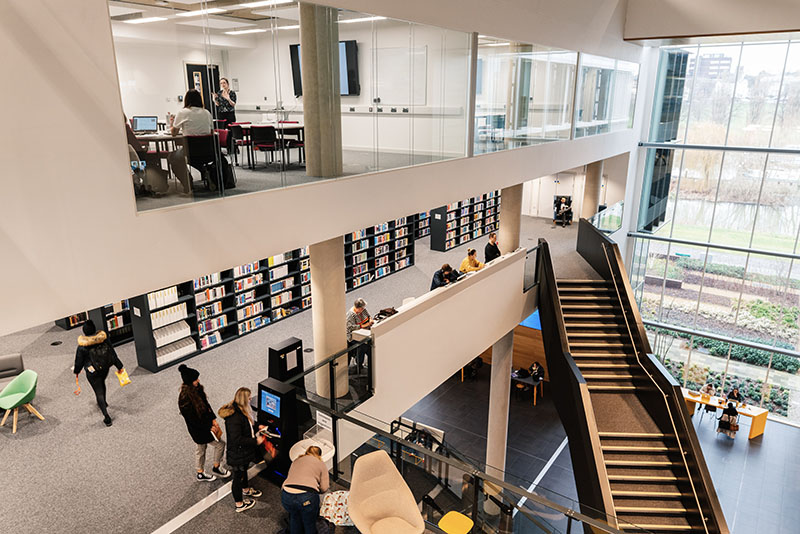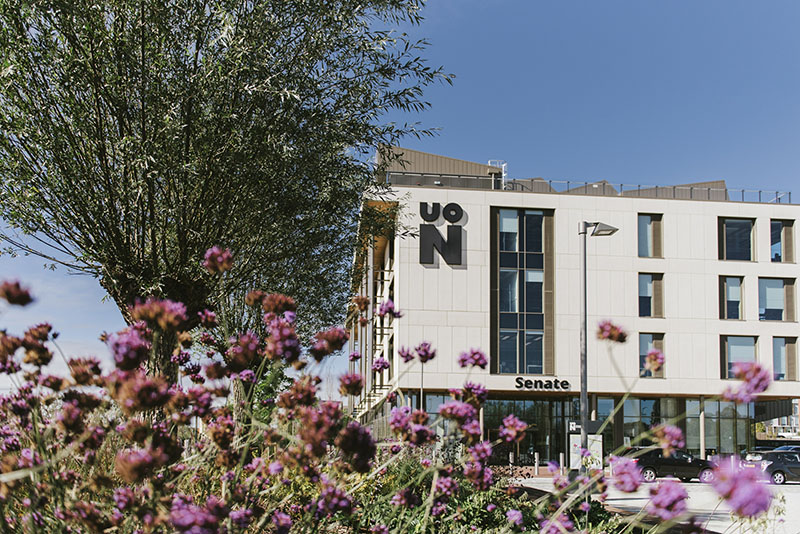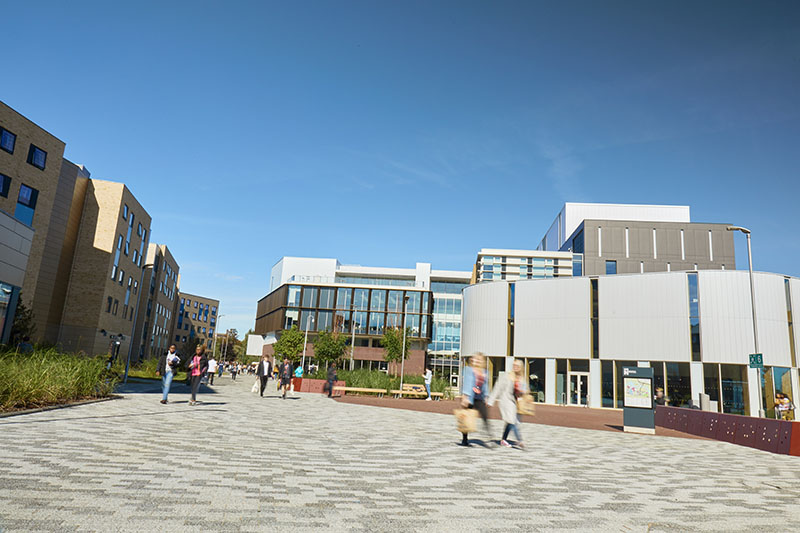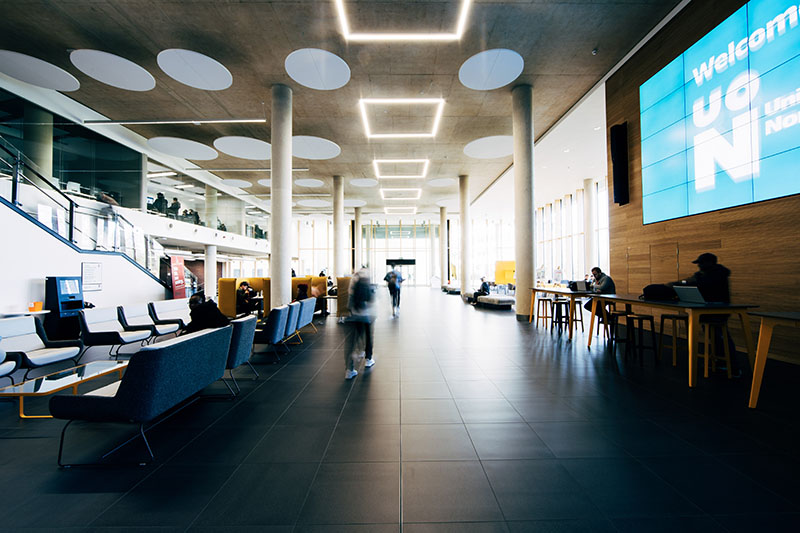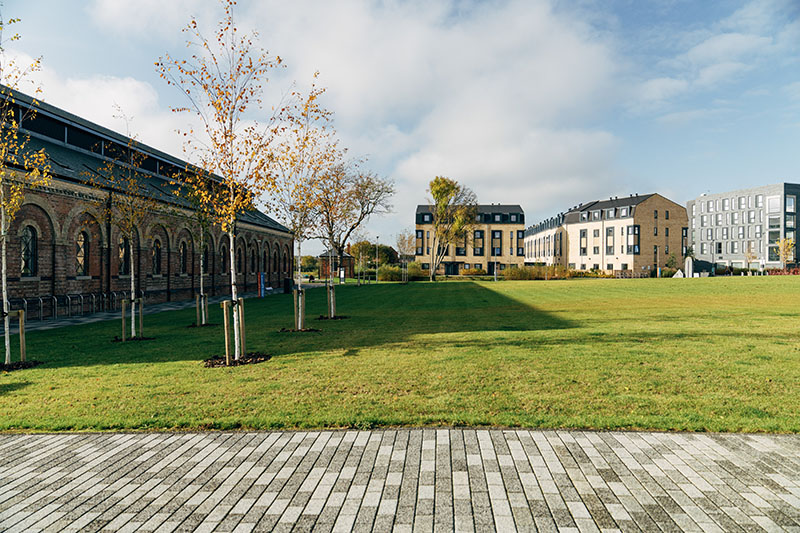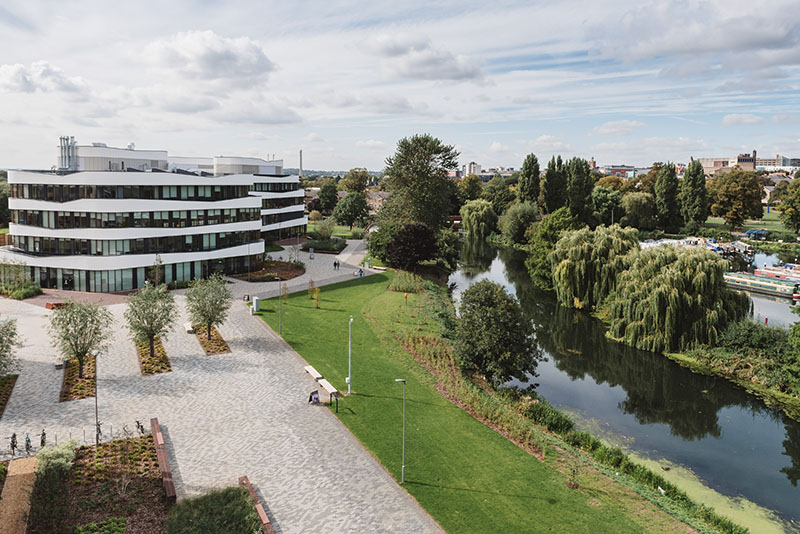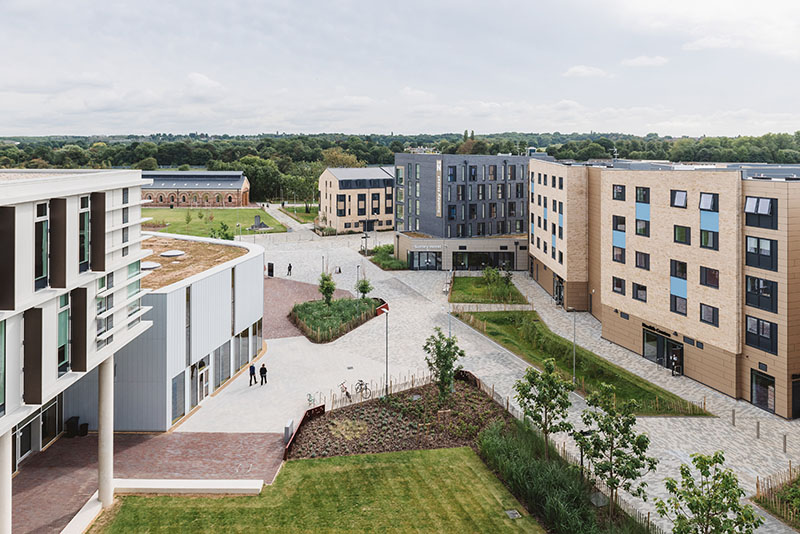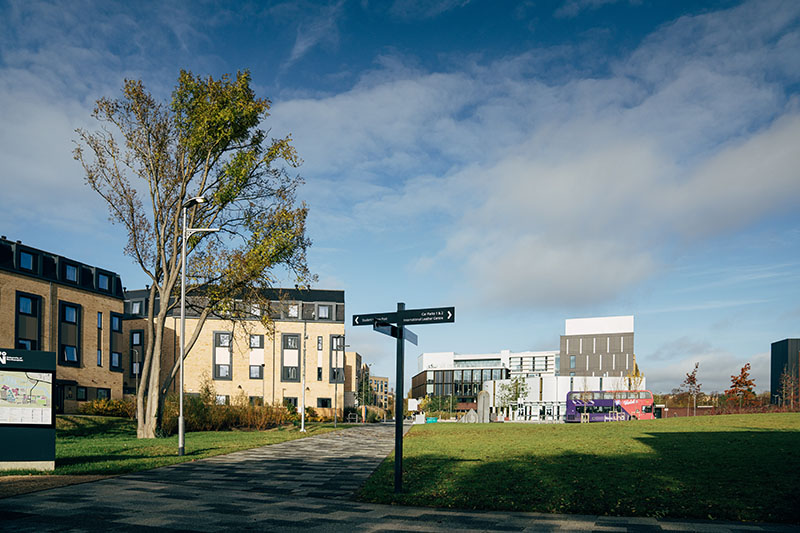
Charlotte Dann
Senior Lecturer in Psychology
Faculty of Health, Education and Society
DiscoverGet in touch with us as we may be able to offer you a place for September 2024 through Clearing.
UCAS Code
3 year: C800
4 year: C801
Level
UndergraduateUG
BSc (Hons)Duration
Full Time: 3 Years
Foundation: 4 Years
Part Time: 4 - 6 Years
Starting
September
BBC at A Level
DDM at BTEC
Fees UK 24/25
Full Time: £9,250
Part Time: £1,540 per 20 credit module
Integrated Foundation Year: £9,250
Fees International 24/25
Full Time: £15,200
Integrated Foundation Year: £15,200
Location
For questions regarding study and admissions please contact us:
study@northampton.ac.uk
0300 303 2772
The University of Northampton’s British Psychological Society (BPS) accredited BSc psychology degree is the first in the country to incorporate the rapidly growing field of Positive Psychology throughout all three years. As part of this contemporary approach, you will study wellbeing, happiness and what makes life most worth living. You will learn how psychology can bring about positive change in countless aspects of everyday and professional life. This change can be seen in social and business development, education, communication, mental health, crime and the clinical contexts.
Throughout the BSc Psychology degree at the University of Northampton, you will learn about the workings of the brain in real-world contexts, health and disease. You will explore the human mind and how our thoughts, feelings and beliefs motivate and influence our behaviour. You will have the opportunity to study areas as diverse as forensic psychology, social and organisational psychology, parapsychology, the human animal and neuroscience of the mind.
This well-established psychology BSc degree programme is accredited by the British Psychological Society (BPS) and is the first step towards becoming a Chartered Psychologist.
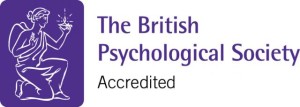
One of our current Psychology students, Jacqui, is available on Unibuddy to answer any questions you may have about the programme and any other general questions about student life at UON.
Updated 16/07/2024
Our BSc Psychology course has been designed to contribute towards achieving the following United Nations Sustainable Development Goal: SDG3 Good Health and Wellbeing.
During your second and third year of BSc Psychology, you will have opportunities to choose from a range of specialist optional modules. Your choices will allow you to explore your developing interests in greater depth. The inclusion of an optional placement year also offers you the chance to experience the world of work, allowing you to apply your learning to the real world. Throughout the programme, you will be taught theory alongside practical elements which will be relevant and applicable to a wide range of careers that psychology graduates can pursue.
You will join a thriving learning community and be taught by a large, diverse and supportive group of research active professionals who are recognised experts in their field. Our psychology degree tutors are passionate about the role psychology plays in all areas of life. They are motivated to inspire future generations who want to make a difference to society.
While studying for your bachelor’s in psychology, you will learn new ways of understanding how and why people think and act as they do. This course will also equip you with transferable critical and analytical skills that will enhance your employability. Studying Psychology offers you considerable flexibility and choice within a supportive environment, through teaching staff and your personal academic tutor. Roxana Teleanu shares the five life lessons she learnt as a student at the University of Northampton.
At the University of Northampton, you will benefit from studying applied Psychology modules, providing valuable work-based learning skills and links to Changemaker. You will have access to excellent facilities and resources for research. Research areas include social, cognitive, biological, developmental and personality psychology.
Our single honours psychology degree course allows you to understand and analyse human behaviour, thought and emotions, from many different psychological perspectives. The course provides you with useful experience, especially if you are intending to work in a range of career areas both in and outside of psychology. This experience can be applied to educational psychology, clinical psychology, teaching and research.
BSc Psychology at UON can be taken as a full time or part time psychology degree. If you are studying this course full-time you will take 120 credits worth of modules for each stage for three years. Some modules are mandatory whilst others are selected from a range of options. In stage one important core ideas, evidence and methods are introduced. This basic knowledge is built upon in stages two and three to foster an advanced understanding of topics.
Listed below are some of the key tests you can administer within our psychometrics library:
Upon completion of your BSc degree in psychology (with an overall classification of a 2:2 or above), you are eligible for Graduate Basis for Chartered Membership (GBC) to the BPS. Acquiring your GBC has a host of benefits for a future career in Psychology. The accredited Psychology degrees at UON mean that you could move into Postgraduate Study in a number of areas in Psychology and beyond, without needing to do a further Psychology Conversion course to obtain GBC status.
Graduate Basis for Chartered (GBC) Membership is considered as the starting point to your career in psychology. Obtaining GBC encompasses many benefits, including access to journals, conferences, and events. You will have the opportunity to enhance your employability through volunteering opportunities and research placements, as well as through the courses focus on analysing human behaviour from many psychological perspectives.
Please note the modules shown here relate to the academic year 24/25. The modules relating to the academic year 25/26 will be available from June 2025.
In stage one, six compulsory modules permit an excellent grounding in psychology. In one of these modules, you will explore the many ways that psychology is applied to real-world problems. In this module, you will develop your research, thinking and communication skills. You will also be introduced to the major approaches to understanding the mind and human behaviour. This involves studying social, cognitive, biological and developmental psychology. Another module enables you to acquire skills in the design and execution of a range of psychological research methods, the analysis and interpretation of data and report writing. Other modules allow you to develop intra and inter-personal skills, as well as build on your psychological literacy using psychological skills and knowledge to solve real-world problems. Throughout this module, you will be interacting ethically and responsibly with others.
During the second stage, you will take modules in Social and Developmental Psychology as well as Cognitive and Biological Psychology. You will also delve into Personality Psychology, and Conceptual and Historical Issues in Psychology, covering the key areas and debates within the discipline. There are also modules to expand your knowledge of quantitative and qualitative psychological research and data analysis through carrying out independent and group projects. You can also choose to study The Human Animal, The Psychology of Well Being or The Psychology of Learning and Teaching in Educational Settings.
In stage three, you have the opportunity to specialise in areas of interest and for your potential career preparation. You will have the chance to select from a range of advanced Psychology modules including Forensic Psychology, Educational Psychology, The Psychology of Mental Health and The Psychology of Health. The options are amongst other applied psychological specialisms such as Applying Positive Psychology and Lifespan Development.
There are also modules reflecting the research expertise of our staff, for example, Psychology of Spirituality, Religion and Wellbeing, Neuroscience of Mind, Parapsychology and Anomalous Experiences and Applying Positive Psychology. You will take an empirical dissertation on a subject of your choice with one-to-one guidance from a psychology lecturer. The dissertation allows you to immerse yourself in a topic of your choice, subject to staff approval. It provides the opportunity to put into practice the research skills that you have acquired throughout the course.
BSc Psychology entry requirements at the University of Northampton are:
We welcome applications from students with a mix of A levels and BTEC/Cambridge Technical qualifications.
In addition, you will be expected to have achieved GCSE Maths at Grade C/4 or above. Domestic equivalencies are not accepted, apart from Access applicants who must take 12 credits of Maths Level 2 or 6 credits of Maths Level 3 as part of their Access course. International equivalences will be reviewed on application.
The standard entry requirements for the BSc psychology Integrated Foundation Year are:
We welcome applications from students with a mix of A levels and BTEC/Cambridge Technical qualifications.
For information on how to apply to study with us, please see our How to Apply page.
All International and EU students applying for a course with us must meet the following minimum English language requirements:
For information regarding English language requirements at the University, please see our IELTS page.
For information on how to apply to study with us as an International student, please see our How to Apply for International Study page.
Fees quoted for the BSc degree in psychology relate to study in the Academic Year 24/25 only. They may be subject to inflationary increases in future years.
Fees quoted for the degree in psychology relate to study in the Academic Year 23/24 only. They may be subject to inflationary increases in future years.
Costs associated with placements such as travel may be incurred throughout your BSc psychology degree, depending on where you are based.
For information on the scholarships available to you, please see our scholarships page.
For more information about possible funding options, please visit our Fees and Funding pages.
At the University of Northampton, everything we do, from funded trips to paid internships, is to give you everything you need to make a difference when you leave.
If you join our full-time BSc Psychology degree at Northampton, you will receive a laptop when your course begins*. The laptops are built to a bespoke custom specification ideal for use in the seminar room, collaborative group work or studying at home.
Whatever your ambitions, we’re here to help you to achieve them. We’ll support you to identify the skills you’re learning during your course, find your strengths and secure practical experience so that when it comes to applying for jobs or further study you’ll feel confident in standing out from the crowd. We’ve created the Northampton Employment Promise because we are so confident that if you focus on your studies and complete one of our awards you’ll be highly employable by the time you graduate. Putting you in a great position to secure employment or continue your studies.
To check out the full list of perks, visit our Student Perks page or dedicated International Perks page.
* UK fee payers only (see Terms and Conditions for further details)
The Integrated Foundation Year (IFY) offers a new and exciting route into studying for a degree in BSc psychology, attracting ambitious and driven students who are willing to learn and advance.
If you have non-standard qualifications or do not quite meet the admissions requirements we can offer you a fantastic opportunity to study a four-year programme that includes an Integrated Foundation Year. The Integrated Foundation Year will help you develop the theoretical/practical and academic skills you need to successfully progress to the full award.
Our four-year courses will enable you to successfully follow the degree pathway of your choice while gaining essential study skills. The foundation year of your chosen degree will be studied on a full-time basis and is aimed at supporting the transition to higher education. Years two, three and four are then studied as a standard degree programme.
With a psychology degree, you can specialise within different pathways and develop within an area of your choice in the field of psychology.
Students who study this course may also choose to follow various career paths outside of the psychological profession. With a Psychology degree, you will have gained such an invaluable set of skills and a knowledge base that you can succeed in areas outside of psychology. For example, our graduates are employed in education, the health service, the police force, human resources management, marketing, the civil service, broadcasting, social work and many other professions.
The work-based elements of this degree in BSc psychology provide valuable career based skills. As well as our annual Psychology Careers Event, at the University of Northampton, we also offer other volunteering opportunities through our Changemaker Hub, Employability Plus recognition, STEAM Opportunities and support from our careers team.
Upon completion of this Psychology BSc course, and depending on degree classification, you can progress to postgraduate training to obtain British Psychological Society (BPS) ‘chartered’ status (GBC). This status can be obtained through counselling, clinical, educational, occupational, health or forensic psychology. You could pursue a career as an academic psychologist, conducting research and teaching in higher education. More information about psychology careers can be found on the BPS website.
One of the main draws for a degree in psychology is that it does not limit you to just working within psychology. Of course, those options are available (and more information about Psychology careers can be found through the BPS website), but the skills that are acquired throughout a Psychology degree are applicable to careers much more broadly. Transferable skills that you can expect to develop across the course include critical thinking, writing and computer literacy. You will also become an effective communicator in a variety of different channels with thorough and ethical research practices. Many of the skills from a Psychology degree are transferable across many different careers and therefore gives you the opportunity to develop yourself towards any route you would like to pursue.
The BSc Psychology route here at the University is between 3-6 years, depending on your availability to study, as you can choose to study this course as a full time or part time degree in psychology. This gives you the time to not only develop a foundational knowledge of psychology and appropriate research skills. You will also be able to develop towards the areas that are of interest to you, and have time to explore career opportunities and areas of expertise, alongside our staff team.
There are multiple points throughout this Psychology BSc course where there are opportunities for work placements. During stage one, there is a short work placement to complete as part of a module assessment. Following from here, there are work placement opportunities within our Education focused modules at stages two and three. We also run an optional placement year, between stages two and three, giving you the opportunity to strengthen career skills alongside your degree, should you so wish.
The teaching methods of this BSc Psychology degree include an innovative, active blended approach to learning. These methods make the acquisition of knowledge more dynamic and flexible for students than ever before. This involves face-to-face seminars, tutorials, practical or laboratory workshops and computer assisted learning. Independent and group work will be supplemented with online seminars, self-directed learning and virtual tasks.
You are encouraged to actively engage and participate with your BSc psychology course material both online and in class discussions to further enhance your learning. This includes a willingness to complete independent study alongside attending your classes. Practical work represents an important component of the Psychology course in each of your three years of study. Throughout the course, you are exposed to different research approaches and will develop an ability to apply both quantitative and qualitative techniques to research questions. We have extensive online resources that support face-to-face contact in class.
You are taught by experienced, well-qualified staff that are experts within their disciplines. Staff in the Subject Group are active researchers, producing research that is nationally and internationally recognised.
A variety of assessment strategies are used at each level to ascertain your level of competence in a range of academic and transferable skills. These strategies include essays, practical reports, multiple-choice tests, oral presentations, time-constrained essays, seen and unseen examinations, critical reviews, group project work, patchwork blogs, audio-visual presentations, and reflective reports, for example.
We provide you with an opportunity to experience the world of work: a year-long placement in between Stages 2 and 3 of study. If you choose to take up a placement year, you will spend a whole year (up to 48 weeks) working for local businesses and NHS recognised placement providers, such as St Andrews Hospital and Great Ormond Street Hospital.
We offer a lot of support in helping you to find a placement, which can be in the UK or overseas. This invaluable experience helps you to apply your learning in your final year and prepares you for your career.
Senior Lecturer in Psychology
Faculty of Health, Education and Society
DiscoverAssociate Professor in Psychology
Faculty of Health, Education and Society
DiscoverSenior Lecturer in Psychology
Faculty of Health, Education and Society
DiscoverSenior Lecturer in Psychology
Faculty of Health, Education and Society
DiscoverAssociate Lecturer (Psychology)
Faculty of Health, Education and Society
DiscoverHead of Psychology and Sociology
Faculty of Health, Education and Society
DiscoverLecturer in Psychology
Psychology BSc (Hons)
DiscoverThere is a broad set of career options available to students who study this BSc Psychology degree, as you are able to specialise within a specific type of psychology.
Some examples of job roles that come from studying this field include:
Successful completion of this degree in psychology can lead onto further studies if required.
"My course massively shaped my career – it gave me a huge amount of knowledge, which I’ve now been able to use in my practice." - Kayleigh Sanders -
If you’d like to see more of our Waterside campus, come and join us for a campus tour.
The Learning Hub is at the heart of the campus and home to the student information desk.
Discover
If you want to become a counsellor, counselling psychologist or develop transferable counselling skills, this course is one of only a few that is designed specifically for you

Our Developmental and Educational course is a specialist psychology programme that allows you to focus on human development and educational issues alongside general psychology

The course is able to offer students access to excellent facilities and resources for research in social, cognitive, biological, developmental and personality psychology.
